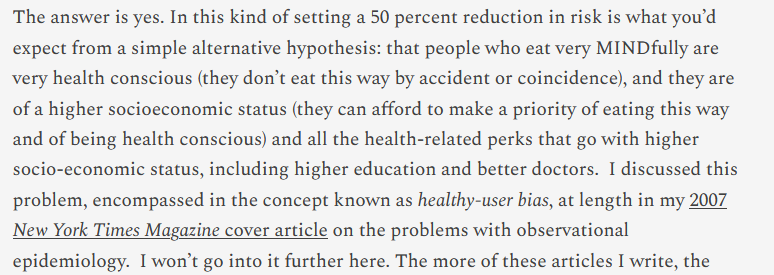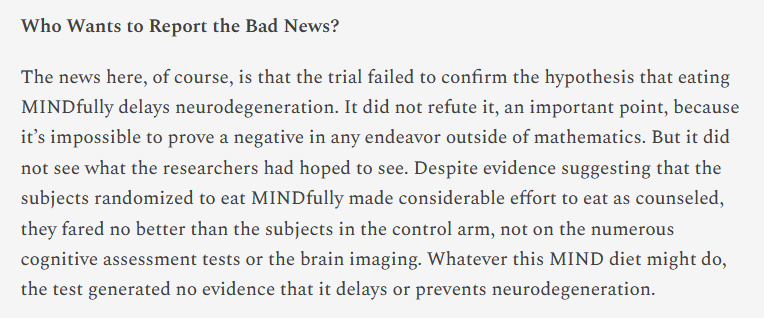This is “Lessons from the MIND Diet Trial” by Gary Taubes, which is on a “substack” (still not sure what this is) from Unsettled Science, mainly run by Nina Teicholz.
The “MIND” diet is some combination of Mediterranean and DASH diet, and was tested in a randomized trial to gauge effect on the brain, eg, prevent or limit Alzheimer’s as one possible benefit.
There are multiple epidemiological studies where this appeared to be true, so they decided to do an RCT.
Unfortunately, it failed.
As always, Gary Taubes is very perceptive and persuasive.
In my mind, he makes this point, which I think is really what is happening with the vast majority of (if not all) epidemiological studies:
These epidemiological studies seem to gauge what is happening to a select group of people, those people who are wealthier and try to eat “healthier” and probably exercise more, smoke less, drink less, have better healthcare, etc. They just happen to eat more vegetables or olive oil, or whatever researchers are looking for, but that does not mean those foods provided whatever benefit the researchers think they provided. Causation is unlikely or at least not proven.






 I grew up hearing the past form of “plead” as “pled,” as with “he pled guilty.” 20 or 30 years ago on American TV it was morphing into “pleaded,” - and I know that also is correct (I’ve looked it up many times), and (insultingly) ‘pleaded’ is listed first, arrggghh.
I grew up hearing the past form of “plead” as “pled,” as with “he pled guilty.” 20 or 30 years ago on American TV it was morphing into “pleaded,” - and I know that also is correct (I’ve looked it up many times), and (insultingly) ‘pleaded’ is listed first, arrggghh.